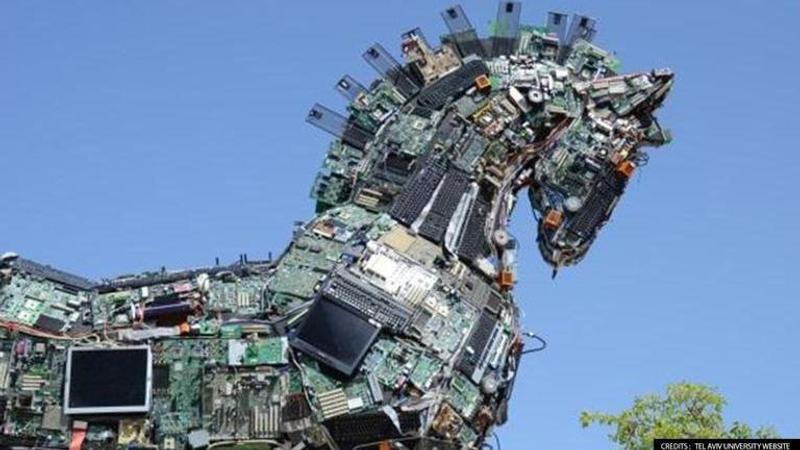Published 23:05 IST, July 26th 2021
'Cyber Horse' made of IT waste stands tall at Israel Cyberweek: Here's what it symbolizes
During the Cyber Week conference at Israel's Tel Aviv University on Sunday, the Cyber Horse exhibit made of IT waste was given prime of place near the entrance

During the annual Cyber Week conference at Israel's Tel Aviv University on Sunday, the well known Cyber Horse exhibit was once again in the limelight, placed as it was at the entrance of the event. The exhibit is constructed with used computer and mobile phone parts infected by viruses and malware. Israel-based creative group 'No, No, No, No, No, Yes' sculpted the Cyber Horse as a means of referencing the Trojan horse in Greek mythology. The group had attempted to make a statement about the dangerous effects of malware, with the horse representing a carrier of potentially "bad news" trying to infiltrate cyberspace.
What does the 'Cyber Horse' symbolize?
In computing, a Trojan Horse, nicknamed a "Cyber Horse," is any malware that misleads users of its true intent. The term is derived from the ancient Greek story where a deceptive Trojan Horse led to the fall of the city of Troy. 'Trojans' are usually spread by some form of social engineering. For example, a disguised email attachment or a fake advertisement on social media could be used to mislead users to retrieve access to a users' personal information such as passwords.
What is Tel Aviv University's Cyber Horse made of?
Tel Aviv University's Cyber Horse status is made out of thousands of computer and cell phone components that were once working fine before they became infected with viruses. The Cyber Horse was the idea of Gideon Amichay, an Israeli designer and communication artist. The Cyber Horse was built as a tribute to 2016's Cyber Week at Tel-Aviv University. Israel is a country that is well known for its advanced security technology.
Cybersecurity: How to recognize a Trojan virus?
A Trojan horse virus is a dangerous virus as it can not only remain on a user's device for months but also the user is often not aware that their device has been affected. While it is difficult to identify a Trojan virus it is not impossible. A Trojan virus causes a user's computer settings to constantly change and is often also accompanied by a loss in computer performance. The best way to recognize a Trojan virus is by searching a device using a Trojan scanner or malware removal software.
Updated 23:05 IST, July 26th 2021



